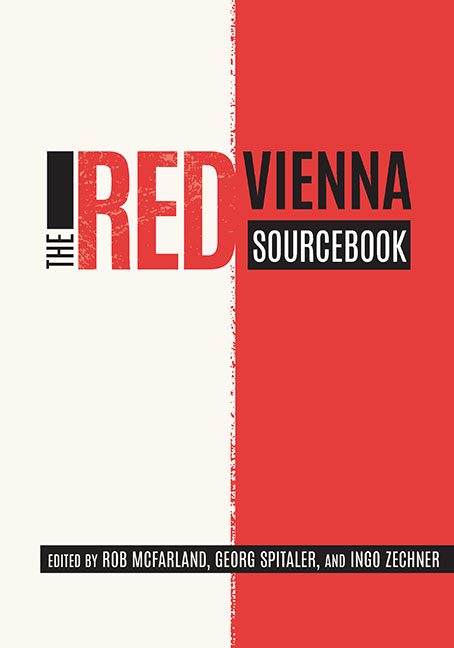Book contents
- Frontmatter
- Contents
- Acknowledgments
- Permissions and Credits
- A Note on the Structure of This Book
- Introduction
- Part I Foundations
- Part II Philosophies
- Part III Identities
- Part IV New Values
- Part V Social Engineering
- Part VI Vitality
- Part VII Housing
- Part VIII Cultural Politics
- Part IX Mass Media
- Part X Exchange
- Part XI Reaction
- Part XII Power
- Chronology
- References
- Contributors
- Index of Subjects
- Index of Persons
Chapter 7 - Freudo-Marxism and Individual Psychology
Published online by Cambridge University Press: 23 October 2020
- Frontmatter
- Contents
- Acknowledgments
- Permissions and Credits
- A Note on the Structure of This Book
- Introduction
- Part I Foundations
- Part II Philosophies
- Part III Identities
- Part IV New Values
- Part V Social Engineering
- Part VI Vitality
- Part VII Housing
- Part VIII Cultural Politics
- Part IX Mass Media
- Part X Exchange
- Part XI Reaction
- Part XII Power
- Chronology
- References
- Contributors
- Index of Subjects
- Index of Persons
Summary
SIGMUND FREUD WAS MORE THAN just a researcher and scientist in Vienna. By the 1920s Freud had become a landmark in the Viennese cultural landscape, a celebrity who attracted visitors from beyond Austria's borders. Not only the bourgeois press claimed Freud as an icon. The Social Democratic Arbeiter-Zeitung published Eduard Hitschmann's congratulatory overview of the work of Freud on the occasion of his seventieth birthday. After detailing the trajectory of Freud's life work, Hitschmann categorizes Vienna's famous doctor as a “revolutionary” dedicated to a cultural ideal of life guided by science. Sadly, Hitschmann explains, many of Freud's most important treatments are unavailable to broad swaths of the common people. But he then includes a quote by Freud that portrays the famous psychologist as a defender of the poor and as a proponent of psychological care for the masses:
Someday the social conscience will awaken and demand that the poor have every right to psychological care as they now have to surgical care, and that neurotics are just as dangerous to the health of the people [Volksgesundheit] as those suffering from tuberculosis. Just like tuberculosis, we cannot turn over treatment to the insufficient care of random individuals from the unwashed masses. Institutes and clinics will be organized, places where psychologically trained doctors are employed to treat our oft-drunken men, our incapacitated women, and our wild or neurotic children and make them resistant to illness and ready to work. These treatments will be provided at no cost.
As the director of the Vienna Psychoanalytic Outpatient Clinic (Wiener Psychoanalytisches Ambulatorium), Hitschmann had a vested interest in using Freud's birthday to leverage more public support for his own institution. But his choice of this particular Freud quote goes beyond his own self-interest: Hitschmann is casting Freud as a proponent of Red Vienna, referring to the city's extensive efforts to eradicate tuberculosis and calling for wide-ranging access to psychoanalytical help as a part of the massive Social Democratic program to cure the health of the Viennese people.
In spite of Hitschmann's choice of quote, Freud was famously ambiguous when it came to endorsing any specific political movement, including the ideas published by the denizens of Red Vienna in the Arbeiter-Zeitung and other publications.
- Type
- Chapter
- Information
- The Red Vienna Sourcebook , pp. 133 - 150Publisher: Boydell & BrewerPrint publication year: 2019

